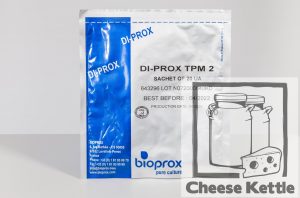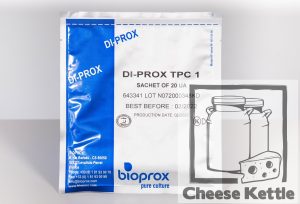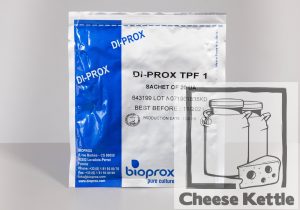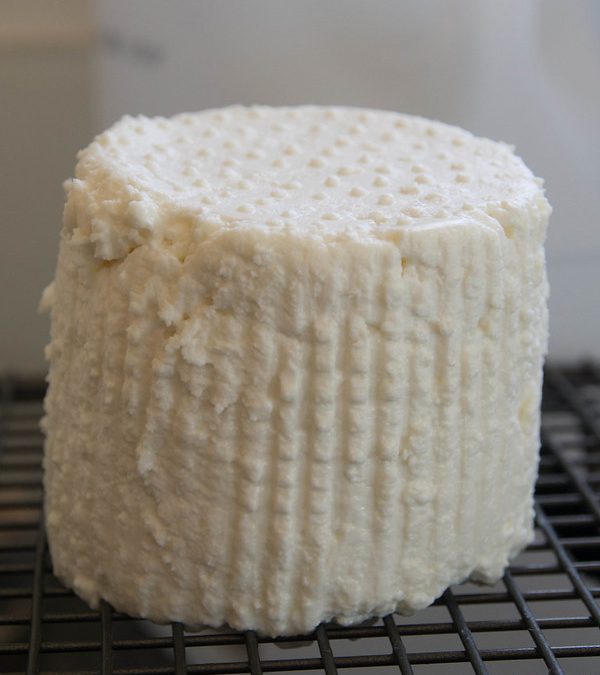You followed the cheese-making process perfectly, from culturing the milk to hooping the cheese. It is time to age the cheese. You’ve placed it in a cool and controlled environment, but the process isn’t over yet. In fact, what happens to a 24 hours old cheese is crucial to the development of its flavor and texture. In this stage of the cheese-making process, you have to make sure that the cheese gets the correct level of moisture and acidity. Both of these affect the outcome of the cheese.
What is Post Hooping Acidification?
When you put the curds in the hoop, they still contain lots of moisture and lactose, where bacteria from the starter culture and non starter lactic acid culture dwell. These cultures are at their most active, just coming from the warm curd and whey. With a lot of lactose and active bacteria present in the cheese, acidification continues to happen within the curds 24 hours after hooping the cheese. This is called post hooping acidification.
What Does It Mean that I have Post Hooping Acidification?
If the curds at the time of hooping are larger than the required size, the cheese will have an excess of lactose. This will allow the bacteria to continue fermenting and result in an excessive production of lactic acid in that 24-hour period. This will make the cheese over acidic. You don’t want that. Acid affects cheese functionality, forming brittle curds and lesser calcium. It’s also often cause choke line in Camembert’s or Brie’s.
Over acidification can also lead to the excessive ripening of cheese under the surface and to the rapid development of flavor, which can lead to an excessively unpleasant taste and ammonia like smell. It may even cause the cheese to end up having a bitter flavor.
The reverse happens when the curds are smaller than the required size. The cheese will be less acidic. You wouldn’t want this either. The acid production on the first 24 hours after hooping will cause the curd to shrink, helping the cheese gradually expel moisture. You’ve probably noticed that much whey is still drained from the cheese overnight.
Temperature also plays a significant role in the acidification process. If the temperature of the area where the cheese is held at overnight is lower than the ideal, you’ll have a lower level of starter activity, resulting in a lower acid level in the cheese. If this happens, the cheese may end up still having lots of moisture the next day.
Remember, curd size at hooping and the temperature the cheese is held at during the first 24 hours after hooping significantly affects the final quality of the cheese. To ensure that you get the desired flavor and texture of your cheese, it is essential to monitor temperature and pH. Measuring the temperature and pH provides you with insights on how you can make adjustments for optimal results.
What is the Ideal Temperature for Cheese after Hooping?
Cheese is ideally hooped at temperatures ranging from 250 C to 280 C for mesophilic cultures and 300 C for thermophilic cultures. This allows the proper ripening of cheese and prevents quality defects. If the temperature becomes colder than 200 C, the acid production rate of starter cultures will slow down.
What can Help Prevent the Cheese from Being too Acidic after Hooping?
Cheese makers nowadays don’t have to get over stressed about post hooping acidification, thanks to innovative cheese making technologies. In the market, you’ll find cheese starter cultures developed to ensure and enhance taste and texture of cheese.
Here are some starter cultures you can use:

Bioprox TPM contains a mixture of Streptococcus thermophilus. It helps slow down acid production dramatically when the cheese reaches the lactic acid pH level of 5.0. You can use this as the sole starter culture if you’re making white mould cheese, but it is best used with a mesophilic culture. This is also used for making cheeses like modern Camembert, Brie, Caciocavallo and Scarmorze.
 As a thermophilic culture, Biprox TPC is commonly used for both hard and soft cheeses. It is the mixture of Streptococcus thermophilus and Lactobacillus delbrueckii subsp. Bulgaricus. The Streptococcus thermophilus serves as the fast initial acidifier while the Lactobacillus delbrueckii subsp. Bulgaricus gives additional acidification while increasing the level of enzymes to breakdown the texture of the cheese as it matures.
As a thermophilic culture, Biprox TPC is commonly used for both hard and soft cheeses. It is the mixture of Streptococcus thermophilus and Lactobacillus delbrueckii subsp. Bulgaricus. The Streptococcus thermophilus serves as the fast initial acidifier while the Lactobacillus delbrueckii subsp. Bulgaricus gives additional acidification while increasing the level of enzymes to breakdown the texture of the cheese as it matures.
Biprox TPC contains a high level or proteolysis when used in high dosage, allowing it to produce flavor and breakdown texture of cheeses that are only aged for several weeks. This culture is commonly used for Tomme made with thermophiles, Asadero, Bel Paise, butter cheese, Emmental cheese, Gruyere, harder and aged mozzarella, Kasseri, Provolone, Parmesan, Romano, Swiss cheese, soft feta and Greek feta.

If you’re making Italian fresh mozzarella, mozzarella di Bufala, and Bocconcini cheeses, the Bioprox TPF is the best starter culture to use.
Where to Buy Starter Culture for Cheese?
If you’re looking for starter cultures, Cheese Kettle offers a variety of starter cultures you can use for different kinds of cheese. Check out our shop to look for the starter culture you need. We also have cheese making equipment and supplies, from cheese hoops and cheese paper to kettle vats and brine tanks. We believe that quality cheese comes from excellent raw materials and high quality equipment.
Final Thoughts
Post hooping acidification affects the quality of cheese in an undesirable way, but thanks to cheese making innovations, you can now use starter cultures that do not only help control over acidification of cheese after the hooping process. Starter cultures also help enhance the flavor and texture of the cheese.
Although starter cultures can help you, it is still very important to carefully follow the cheese-making process to achieve a good quality cheese, especially if you’re making cheese at home.
Are you thinking about starting your artisan cheese business? At Cheese Kettle, we also provide full engineering service for your cheese making or brewing business- from the planning up to your startup. Our experienced project engineers and specialists can give you the advice you need. Contact us today.

